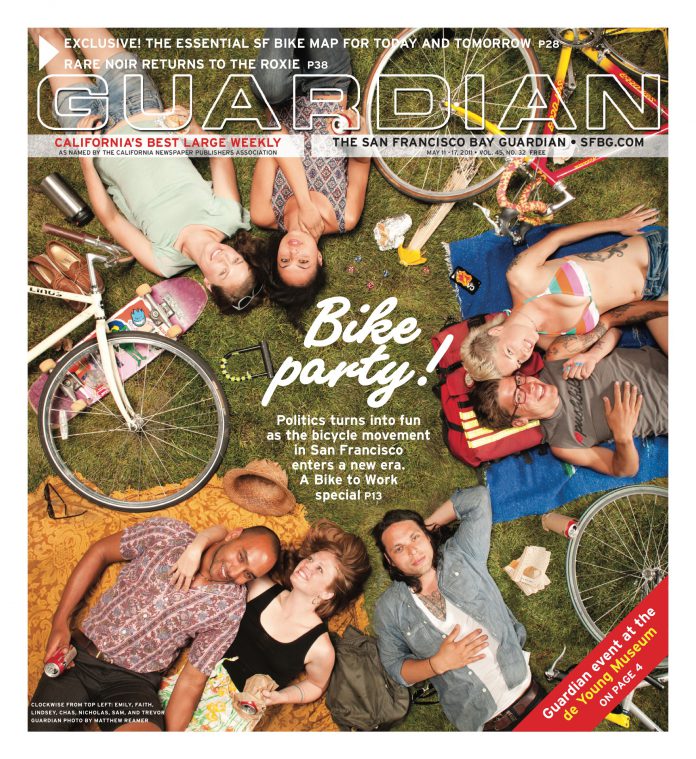OPINION It’s not often that the interests of seniors, cyclists, and small businesses intersect, but we all will be disadvantaged if Board of Supervisors President David Chui’s ordinance to stop Yellow Pages distribution in SF passes. Add gays and lesbians, non-English speakers, and low-income residents to the mix, and you have a large contingent of San Franciscans who, by necessity or choice, use a phone book rather than an smart phone to get information about their local community. And their use of the book may be far less of a drain on the environment than Chui’s misguided attempt to save paper.
It’s true that not everybody uses their copy of the Yellow Pages, and that not enough consumers know that they can opt out of receiving unwanted books online or with a simple phone call. But Chui’s ordinance goes beyond just addressing that problem — it cuts off a vital source of information for many local communities and vital advertising revenue for local businesses — which ultimately could send more San Francisco dollars out of town.
Chui’s ordinance doesn’t just mean no more of the big, fat, yellow books (which are already printed on recycled paper), it means no more of the specialized books as well: gay and lesbian, Hispanic and Chinese. These smaller books are key for consumers who want and need language-specific or specialized services as well as for specialized businesses to reach their audiences.
The Internet simply isn’t a substitute for everyone. While many San Franciscans are young, affluent, and take for granted phones that enable them to post their restaurant choices and arrivals on Facebook instantaneously, they are not our whole city.
According to a 2007 survey, low-income, elderly, and Latino residents, as well as those living in Bayview-Hunters Point, Crocker Amazon, Chinatown, Civic Center, and Visitacion Valley, have substantially lower levels of home computer and Internet usage than other San Franciscans.
Research by The Utility Reform Network (TURN) indicates the same, as does our experience with our own members, many of whom are seniors. Not only do they read our print newsletter, they often respond with comments, criticism, and questions via snail mail. Yes, they actually send us stamped, hand-written letters.
The supervisors have heard potent testimony from San Francisco’s small businesses begging not to be put at further disadvantage against large big-box stores and virtual retailers that can buy top billing on Google. Many small businesses owners told the board that the majority of their new customers come from Yellow Pages advertising, and that without this way of reaching those customers, they are likely to close.
Which is where the cyclists come in. I’m lucky enough to have a computer and decent Internet access at home, but I use the Yellow Pages to find local businesses that I can get to on my bike or on foot, preferably while en route to or from work.
So to me yellow is the new green. When I go online, Target, Walmart, and Zappos come up. With all of the push to buy local, why would we strangle local businesses for the sake of saving a bit of recycled paper?
The Yellow Pages Association has been quick to respond to Chui’s concerns with an upgraded website (www.yellowpagesoptout.com) that makes it easier than ever for consumers to choose whether to get the Yellow Pages, and how often.
That will further reduce what is already a minimal environment impact. Phone directories represent a mere 0.3 percent of the solid waste stream, significantly less than newspapers (3.2 percent) and office paper (2.2 percent).
San Franciscans without Internet access are more and more marginalized every day, and small businesses are fighting against the crush of online retailers. Local directories are key resource for keeping our dollars right here in San Francisco, and keeping shoppers out of their cars. We need to use them more, not less.
Mindy Spatt is communications director for The Utility Reform Network.

